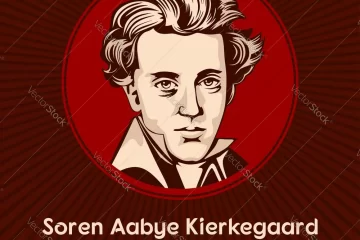John Horse

John Horse was a Afro-Native American born in 1812. He was a member of the Black Seminoles in Central and Southern Florida. He grew up under an occupying army (the United States) and was treated by the Americans and by the Seminoles as something like a 2nd class citizen as he was only half-Seminole and half-African descent. However, he studied and he used faith and education to make himself into a learned man who spoke at least 4 languages (English, Spanish, Creek and Miccosukee) and he was a successful business owner. He was intimately aware of the Bible, which he called, Da Big Book. He loved his family and his community of Black Seminoles and runaway slaves.
When injustices came to his people (and they did), his response was to work harder at his business and his dream of having a land where the members of his community were free. He did not let the thoughts of racism or hatred into his soul.

When the 2nd Seminole War of 1833 came, he used his heart and his brain first to determine his course of action. There is that saying, ‘Soldiers do not fight because they hate what is front of them but because they love what is behind them!’ He was not a violent man and did not want war, he wanted his family and peace. But he realized that since the United States had slavery, if they took John Horse’s land, they would enslave all of the Africans and Afro-Native Americans. So he fought with the Seminoles with his whole being, so that his people might continue to have the life they had. He did not use the war as an excuse to bust up businesses to get free stuff.
Relatively quickly, he realized that the resources of the United States were too much (even though it was the most costly of the Indian wars in U.S. history in terms of money and lives) and he agreed to go west to the Oklahoma territory. His mentor, Abraham was one of the first to go to Oklahoma. There many Seminoles and mixed peoples reside today.
Oklahoma was not the respite that John Horse thought it would be. There were many Americans and other Indian tribes trying to kidnap them off the reservation and sell them to others, the government of the Oklahoma territory would not enforce the laws of the United States government, and there was even animosity between the Seminoles and the Black Seminoles for giving up the fight in Florida.
Despite these setbacks, John Horse kept pushing forward to his dream of being able to live as a free man and for his family and his community. Just like Moses or Joseph or Paul, he did not allow the size of his mountains to be greater than the power of his faith in himself, his community, or the Lord.
Later on, with the help of his Seminole friend, Wild Cat, he had the opportunity to move to northern Mexico where they would be totally free and given supplies by the Mexican government. In exchange, John Horse and the others would defend the Mexican border against the Commanche Indians and United States expansionism. Just like Moses, John Horse led his people to the promised land. He could have stayed in Oklahoma and been consumed by hate because of the all the unfair circumstances, but his love for freedom was greater than his hatred for those who oppressed him.
Mexico was a haven for John Horse and the Black Seminoles and the runaway slaves and the Seminoles. There they tilled the land and ran farms and acted as the local militia. They were at peace and flourished. John Horse himself became a decorated soldier in the Mexican army and the liaison between his people and the Mexican government. He accomplished it all by not allowing himself to hate or think that he was entitled to handouts.
Today, there is a community of Black Seminoles still living in Mexico, 140 years later!
1 Peter 2:16 Live as free men, but do not use your freedom to cover-up for evil; live as servants of God.
————————————————–W.







No Comment